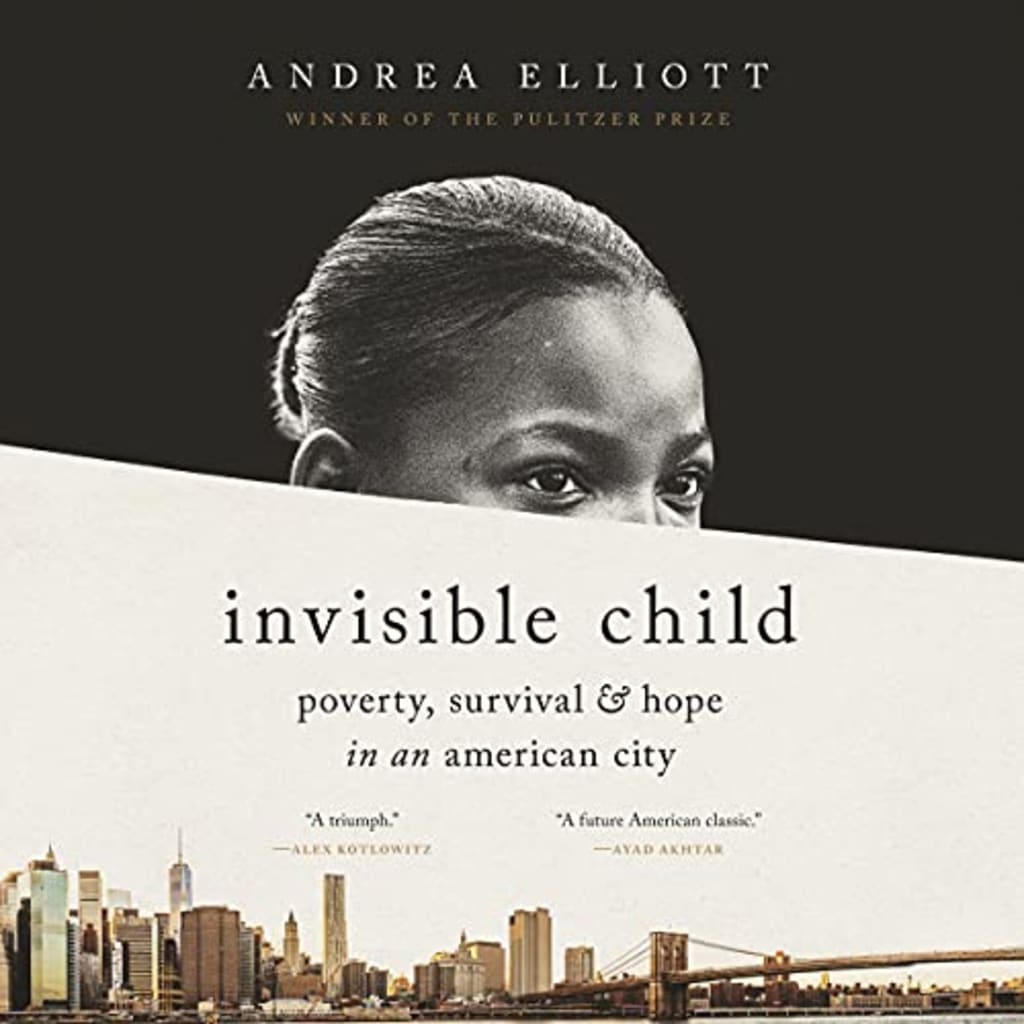Invisible Child
Poverty, Survival & Hope in an American City

The life of Dasani, an 11-year-old homeless girl who lives in New York's run-down Auburn shelter, is painstakingly chronicled in Andrea Elliott's novel "Invisible Child." Dasani's existence careens between hunger, violence, and rare moments of youthful bliss during the course of the novel. The compassionate storytelling of Elliott gives poverty and deprivation personal faces, bringing into focus the humanity that lies beneath statistics on injustice and failing social structures. Her in-depth reporting uncovered a broken system that failed the most helpless members of society time and time again.
Elliott, who first described Dasani's story in a series that was published in 2013 in The New York Times, develops the narrative into an evocative book that sheds light on the institutional indifference that condemns children from low-income families to a life of instability and limited opportunity. She does this by contextualizing Dasani's hardships within the dysfunctions of underfunded institutions, unscrupulous shelter contractors, and flawed policies claiming to have humanitarian intentions. She does this through detailed reporting.
Nevertheless, Elliott highlights the resiliency and mutual commitment of the Cope family, which conveys their dignity in spite of the overwhelming hardships they face. The vivacious nature of Dasani's personality brings life to the daily dramas, which range from searching for necessities to calming down her distressed brothers. As Dasani takes care of seven younger family members while her parents struggle with addiction, mental illness, and violent partners, she allows us to get an up-close and personal experience of her world through her astute observations and the wisdom she has gained from adversity.
Bahni Turpin, the story's narrator, brings Dasani's emotions to life with a genuine presence that amplifies her happiness, perplexity, and anguish. The empathic representation of this child's harrowing predicament that Elliott provides in the book is brought to vivid life in the audiobook. The listeners will get a sense of being completely immersed in Dasani's determined quest for safety and belonging in the face of systems that appear to be focused on her failing.
Elliott reveals the paradoxes that are deeply ingrained in Auburn's institutional culture and that pretend to help while continually causing harm due to poor management and bad incentives. She sharply criticizes half-measures that are passed off as welfare while abdicating actual responsibility for the individual's rehabilitation. Throughout, Elliott emphasizes how racism exacerbates fissures that end up swallowing families who are already on the margins.
The human toll that poor governance may take is brought home vividly by Dasani's journey through the city's disjointed organizations. Elliott builds a compelling argument for reform by tracing failures in existing systems, such as child services, shelters that are abusive, schools that are underfunded, and more. The intimate lens that focuses on Dasani's hopes and frustrations brings to light the genuine stakes involved in enhancing society's ability to care for its most vulnerable people.
Elliott resists the temptation to portray the Cope family as helpless victims, despite the fact that the book is primarily a denunciation of widespread injustice. She highlights their failures together with their resourcefulness and their commitment to one another in order to overcome their situations. The tale is held together by the vibrant voice of Dasani, which enables readers to see her individuality apart from her lack of resources.
In the end, Elliott has created a priceless piece of literary journalism that successfully bridges the gap between policy and sentimentality. Storytelling, scene design, and the integration of historical context are some of the strengths that "Invisible Child" utilizes to humanize the tragedy of child poverty in the United States. The book by Elliott incites moral anger while also advocating for reform that is based on human dignity. Her reporting exemplifies the power that socially conscious journalism possesses to bring to light previously hidden injustice and to spark change.
By enrolling in a 30-day complimentary trial on Audible, participants are granted the opportunity to acquire two complimentary audiobooks as an initial incentive, so affording them the freedom to procure any desired literary work.There will be no financial burden on your part, but I will receive a modest commission.
Termination is permissible at any given moment. The ownership of books remains with the member, even in the event of cancellation. Please access the provided hyperlink by clicking on it.
The provided link directs to an Amazon webpage.





Comments
There are no comments for this story
Be the first to respond and start the conversation.